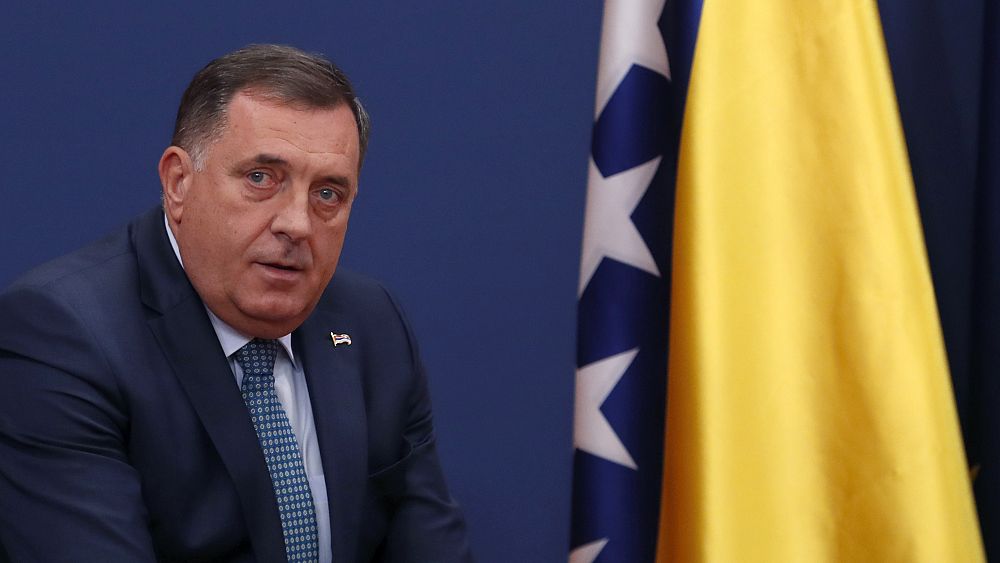
Bosnian Serb politicians have said they will boycott the country’s institutions in protest at the United Nations high representative’s decision to ban genocide denial.
The move to block decision-making comes after Valentin Inzko imposed a number of changes to the country’s criminal code last week.
Prison sentences of up to five years will be handed out in Bosnia for genocide denial and the glorification of war criminals.
But after a meeting with all Bosnian Serb political parties, Milorad Dodik — the Serb member of Bosnia’s joint presidency — denounced the amendments.
“We will not live in a country where someone can impose a law by simply publishing it on his website,” Dodik said on Monday.
Other Bosnian Serb political representatives said they considered Inzko’s decision “unacceptable and void”, and said that they will boycott the work of the country’s multi-ethnic presidency, parliament and government.
Serb officials have been accused of downplaying the 1995 Srebrenica massacre, Europe’s only acknowledged genocide since World War II.
Bosnian Muslim leaders had hailed Inzko’s decision on Friday as a “historic” legal amendment.
Since the end of the 1992-1995 war, Bosnia has been divided into two autonomous entities, the Serb-run Republika Srpska and a federation shared by Bosniak Muslims and Croats.
The two are linked by joint institutions and all the decisions on the state level have to be reached by consensus of the three ethnic groups.
As the top international envoy overseeing the implementation of the peace agreement, the UN High Representative has the authority to impose laws or dismiss officials who undermine the post-war ethnic balance and reconciliation efforts.
But the decision by Dodik to use these powers a week before the end of his mandate, after he had not used them for years, surprised and infuriated Bosnian Serb politicians.
The International Court of Justice and the International Criminal Court for Former Yugoslavia declared the Bosnian Serb killings of more than 8,000 Bosniaks that took place in Srebrenica as genocide.
But Bosnian Serb officials and neighboring Serbia have refused to accept the designation and have honoured their wartime leader, Radovan Karadzic, and military commander Ratko Mladic as heroes.
Both men have been convicted of genocide and were sentenced to life imprisonment by a Hague-based tribunal.